The Forest of Hands and Teeth Book 1
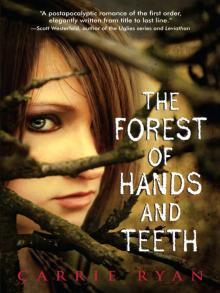

Author: Carrie Ryan
Category: Young Adult
Published: 2008
Series:
View: 337
Read OnlineAmazon.com ReviewAmazon Exclusive: Scott Westerfeld Reviews The Forest of Hands and Teeth Scott Westerfeld is the author of three sets of books for young adults, including the Uglies series, the Midnighters series, and a series of stand-alone novels set in contemporary New York, including So Yesterday, Peeps, and The Last Days. Both Uglies and Peeps were named Best Books for Young Adults by the American Library Association in 2006. Read his exclusive Amazon guest review of The Forest of Hands and Teeth: Teenagers love a good apocalypse. Who doesn't? All those annoying rules suspended. Society's pretenses made irrelevant. Malls to be looted. School out forever.But in The Forest and Hands and Teeth, Carrie Ryan's marvelous debut novel, the post-apocalypse is defined more by constraints than freedoms. The book begins seven generations after the Return, an undead plague that has ended civilization as we know it. Of course, a zombie outbreak usually means shotguns and mall looting--the very essence of freedom. But more than a century on from the Return, the malls have already been looted, and shotguns are a distant memory. The novel's heroine, Mary, lives in a village surrounded by one last vestige of industrial technology: a chain-link fence, beyond which is a vast forest full of shambling, eternally ravenous undead--the forest of hands and teeth. No villager ever goes outside this fence, unless they want to die. (And given this bleak scenario, some do.)Mary's world is bounded not only by the fence but by the archaic traditions of her people, which are enforced by a religious order called the Sisterhood. Marriages, childbirth, death, every stage of life must be controlled to sustain the village's precarious existence. Even the houses are circumscribed--literally--with passages of scripture carved into every entrance to remind the inhabitants of the rules that sustain human life amid the horrors of the forest. After so long an isolation, the village is beginning to forget. Some doubt that there really was a time before the Return, with giant cities and wondrous technologies. Others believe that nothing at all exists beyond the forest of hands and teeth. And nobody but Mary and her slightly mad mother believes in something called "the ocean," a huge and unbounded space beyond the reach of the undead.Mary is the sort of teenager who dreams of bigger things. Not just the ocean, but epic romance and adventure beyond the fence, maybe even other villages somewhere out there, safe behind their own fences. She believes that answers can be found to questions like, What made the Return happen? And what was it like before?Escaping the confines of home for the greater world is, of course, one of the great themes of teen literature. But few heroes in any genre have faced an obstacle as daunting as the forest of hands and teeth. Though Ryan's writing is as lyrical as her title, this novel is driven by the same grim relentlessness that animates any good zombie film. Elegant prose and undead hordes combine to create a story where high drama feels completely unforced, where tension is constant, and where an image as simple as the open sea is achingly romantic.Zombies have been metaphors for many things: consumerism, contagion in an overpopulated world, the inevitability of death. But here they resonate with a particularly teenage realization about the world--that social limits and backward traditions are numberless and unstoppable, no matter how shambling they may seem at first.And yet we must try to escape them anyway, lest we wither inside the fence._--Scott Westerfeld_Amazon Exclusive: A Q&A with Carrie RyanWe had the opportunity to chat with Carrie Ryan over e-mail about her first novel, The Forest of Hands and Teeth. Here’s what Carrie had to say about George Romero, the growing popularity of young adult fiction, and how she's preparing for the zombie apocalypse. Amazon.com: You have said you began your writing career intending to write “chick lit.” How, then, did you come to write The Forest of Hands and Teeth, which, on first glance, is a far cry from that genre? Carrie Ryan: In college many of the short stories I wrote were fairly dark but I’d always heard the advice that you should write what you read and at the time I loved to read romantic comedies and chick lit. So when I decided to attempt a novel, that’s what I tried to write even though it didn’t fit my natural tone. In fact, when I first tried to write a romantic comedy I had to constantly pull myself away from writing dark (and the reason I never tried to sell that book is because too many characters die which wasn’t very comedic!). Even the young adult chick lit I was working on tended to be dark--the main character interned at a coroners office and was surrounded by death.So writing The Forest of Hands and Teeth was more of me embracing my true voice. I think I’d been scared to just indulge in it before, afraid that there wouldn’t be a market for it (and in fact, even when I was writing The Forest of Hands and Teeth I was convinced it wasn’t saleable). As soon as I jotted down the first line I decided to write it the way I wanted--to experiment and push the bounds and not worry about the market or what other people would think. This was the story I realized I had to tell when my fiancé suggested, “write what you love.”Amazon.com: Your book has drawn inevitable comparison to the archetypal zombie flick, Night of the Living Dead. How does Mary’s world differ from the world George Romero created more than 40 years ago? Are the movies what first got you hooked on zombies?Ryan: George Romero has really sparked a lot of imaginations and while any book or movie with zombies inevitably owes a massive debt to Romero's world, I tend not to think of The Forest of Hands and Teeth as a "zombie book," but rather a book that happens to have zombies in it. The Forest of Hands and Teeth, which takes place generations after the apocalypse, is really about a girl struggling with growing up, desire, and a controlling society set against the backdrop of a world with zombies (called “Unconsecrated”) constantly pushing against the fences. The characters have already come to terms with the Return (the zombie apocalypse) and know nothing else: this is their world and they've accepted it.Romero's movies, on the other hand, deal more directly with the zombies--the plot arc of Night of the Living Dead is having to reckon with and defend against a zombie apocalypse as it occurs. In Romero's world the characters are still trying to fight against the zombies, still trying to reclaim the world of "before." In my book, the "before" time is lost, beyond memory, and the Unconsecrated are not so much the focal point as a part of the setting.I do think watching the remake of Dawn of the Dead sparked my interest in zombies and led to my watching other zombie movies, including Romero's. One of the things I love the best about his movies, and something that inspired me, is that while they may appear to be simply zombie flicks on the surface, they're actually a commentary on society and are often a reflection of societal fears.Like many other authors and directors, I wanted to use zombies as a mirror for the characters in my book. In the end, though, what influenced me most was the idea of a girl growing up trapped in a village that has forgotten everything and her hope that there could be something more beyond the menace in the Forest surrounding them, and that's what The Forest of Hands and Teeth is really about.Amazon.com: Many young adult books with post-apocalyptic settings have been gaining a wide adult fan base--Suzanne Collins’s The Hunger Games and Susan Beth Pfeffer’s Life As We Knew It are a couple of examples. Why do you think these books are attracting a wider audience?Ryan: It’s been really exciting to see so many young adult books find such popularity with adult readers and I’ve loved re-introducing both my mom and sister to the young adult section. In the past I think readers have “graduated” to adult books and there’s been this feeling that young adult books are “just for teens” and are therefore somehow lighter and less substantive. While there have always been phenomenal young adult books published every year, it’s really felt like there’s been a renaissance recently: more books that are pushing the boundaries in every way. Not only are a lot of sophisticated young adult books being published, but they’re accessible to everyone--most adults can remember those years of their life and tap into those emotions and feelings. But even more, so many of these books also tap into adult emotions and feelings: how to survive, figuring out what matters in life, struggling with changing relationships. These books make us question our decisions and ourselves and, especially in the current atmosphere of apprehension in the world, people are looking inward to what really matters to them.Ultimately, I like to think that the bottom line is there are just really really great books in the young adult section and that great books will find a wide audience, no matter where they’re placed.Amazon.com: In The Forest of Hands and Teeth, no one seems to know how the Unconsecrated (the zombies that live outside the village gates) first came into existence. What do you suspect would trigger the zombie apocalypse?Ryan: This is actually one of my favorite parts of any zombie book or movie: seeing how the apocalypse is triggered. There are so many different ways it can happen (and has happened)! Aliens, séances, military and medical experiments gone wrong, parasites, environmental mishaps. You name it, it’s caused the zombie apocalypse (I’m still waiting for a movie with chocolate overindulgence as the trigger!)But I actually made a conscious decision to leave the cause of the Return a mystery in The Forest of Hands and Teeth. One reason is that I wanted to show how knowledge and history could erode so drastically over time. The characters in my book have been so isolated and controlled that they think the ocean is a myth; they have no conception of the world before the Return.Ultimately, I recognized that the cause of the Return doesn’t matter to the characters or the story. There are so many books and movies that focus on why and how such an apocalypse occurs but my book takes place so long after the event that it’s meaningless. I really wanted to draw that distinction between my world and other zombie worlds: that it doesn’t matter how or why or what triggered the zombie apocalypse, just that it happened and that’s the world they live in now.Amazon.com: So, how are you preparing for the zombie apocalypse?Ryan: We’re not at all prepared! It’s funny, shortly after seeing my first zombie movie I dreamt there was a zombie apocalypse and how I would handle it if stuck in the apartment I was living in at the time. Even after waking up I kept trying to figure out how I would survive (how to defend myself, get water, find help, etc.). I’ve since thought through similar issues with every place we’ve lived sort of as a fun thought experiment and I’ve come to the conclusion that we were much safer when we lived in a top floor apartment than our one-story house with too many windows!To prepare, I just continue to read books, watch movies and am currently trying to train my puppy to be a zombie-sniffing dog.From School Library JournalStarred Review. Grade 9 Up—Mary knows little about the past and why the world now contains two types of people: those in her village and the undead outside the fence, who prey upon the flesh of the living. The Sisters protect their village and provide for the continuance of the human race. After her mother is bitten and joins the Unconsecrated, Mary is sent to the Sisters to be prepared for marriage to her friend Harry. But then the fences are breached and the life she has known is gone forever. Mary; Harry; Travis, whom Mary loves but who is betrothed to her best friend; her brother and his wife; and an orphaned boy set out into the unknown to search for safety, answers to their questions, and a reason to go on living. In this sci-fi/horror novel, the suspense that Ryan has created from the very first page on entices and tempts readers so that putting the book down is not an option. The author skillfully conceals and reveals just enough information to pique curiosity while also maintaining an atmosphere of creepiness that is expected in a zombie story. Some of the descriptions of death and mutilation of both the Unconsecrated and the living are graphic. The story is riveting, even though it leaves a lot of questions to be explained in the sequel.—_Debra Banna, Sharon Public Library, MA_ Copyright © Reed Business Information, a division of Reed Elsevier Inc. All rights reserved.
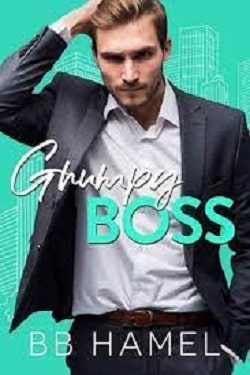 Grumpy Boss
Grumpy Boss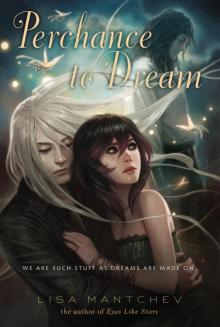 Perchance to Dream
Perchance to Dream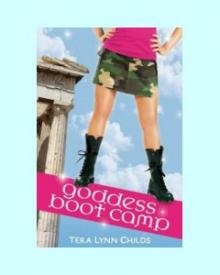 Oh.My.Gods. 02 - Goddess Boot Camp
Oh.My.Gods. 02 - Goddess Boot Camp Solidify
Solidify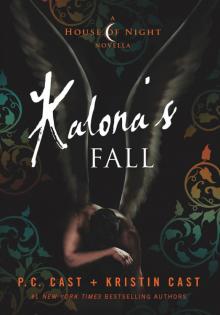 Kalona's Fall
Kalona's Fall Floored (Frenched 3)
Floored (Frenched 3)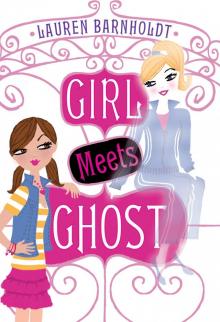 Girl Meets Ghost
Girl Meets Ghost Deception
Deception